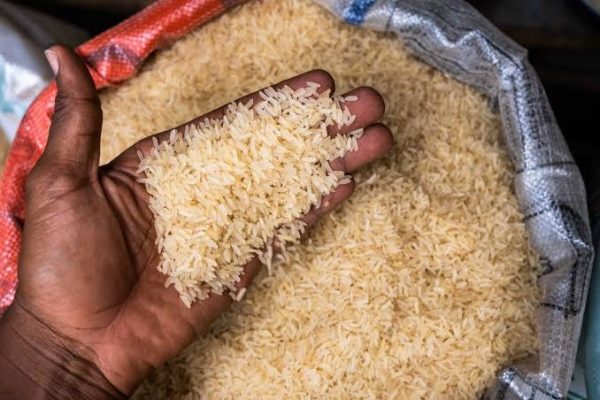Tags
Nigeria’s rice prices to drop as glut hit global market
Feyishola Jaiyesimi & Faith Donatus

Nigerians may see relief in the prices of foreign parboiled rice on the back of a global glut occurring in major producing countries.
This expected drop is largely due to a rice glut in India — world’s largest producer of the grain – which has bolstered global stockpiles for the second consecutive season and driven rice prices to the lowest in 15 years.
In the last three months, prices of both local and foreign rice have declined and remained relatively stable. A BusinessDay market survey shows that a 50kg bag of foreign parboiled rice now costs an average of N67,000 as against N93,000 in January, indicating a 28 percent drop year to date.
Globally, India’s 5 percent broken parboiled variety was quoted at $500-510 per metric tons on Monday as against $530-$536 per ton last week. Thai 100% was quoted $413 per metric ton in March as against $405 per ton in April, indicating a $8 drop in price.
Experts expects prices to drop further with glut hitting global rice market and global prices continues on a downward trajectory.
“That global rice prices are falling also means that Nigeria will see a decline in rice prices too,” said Victor Iyama, chairman of the Federation of Agricultural Commodity Association of Nigeria (FACAN).
Iyama mentioned that the country should boost its local production rather than depend on a global glut for affordable rice.
The drop in global prices is stirring relief and excitement across the country as rice is a major staple food in Africa’s most populous nation.
“I didn’t allow my children to eat rice as often as they wanted before now because of how expensive a bag of rice was,” said Sadiat Bola, a hairdresser in Ojodu Berger of Lagos. “However, today, we eat rice as many times as we want because it is affordable.”
During the festive season in December and the New Year, prices of rice soared to above N120,000, dampening the spirit of celebration amongst several Nigerians.
Ibrahim Kabiru, president of the All Farmers Association of Nigeria (AFAN), reiterated that Nigerians would surely see a fall in foreign rice prices as a result of the global glut. “Of course, Nigerians would benefit from the ongoing global glut.”
India experienced extreme weather conditions driven by El Niño, which prompted the country to impose export restrictions. As a result, rice prices surged and remained elevated for an extended period.
But with the recent lifting of these restrictions, an increased supply of rice is expected to enter international markets, which will likely lead to a decline in prices.According to the Food and Agriculture Organisation (FAO), the decline in rice globally started in September 2024 after India reversed export restrictions, including a 20 percent export duty on Thai broken white rice and parboiled rice.
It also pegged its rice price at $950 per ton as the minimum export price for basmati rice to curb food inflation.
In its latest rice update, the FAO reported a decline in export prices for Indica rice from most major exporters in December. This drop was attributed to a slowdown in fresh sales and intense competition for market share.
Additionally, currency depreciations against the dollar further contributed to the price reduction, amplifying the downward pressure already set by India’s abundant kharif crop supplies.
However, Bashir Ismail, a paddy rice processor based in Kano State, explained how the ongoing decline in global rice prices squeezes rice production in the country.
“Nigeria is likely to experience even lower prices, especially following the recent rice importation initiatives by the federal government. While this could offer relief to consumers, producers and processors might face further losses due to rising input costs,” he told BusinessDay.
In the 2024/2025 season, rice production declined by 7 percent to 5.23 million metric tons (MT) from 5.61 million MT in the 2023/2024 season, according to data from the United States Department of Agriculture (USDA).
This shortfall in production opens a gap for importation. Africa’s most populous nation imports about 43 percent of its rice needs.
Earlier in February, the AFEX annual commodity report projected that global rice prices would fall by 11 percent in the 2025/2026 season due to favourable weather conditions in India and other top-producing countries.
“The global rice market is poised for potential price relief in 2025, driven by expectations of strong production and key policy shifts in India,” the AFEX report noted.
https://businessday.ng/agriculture/article/nigerias-rice-prices-to-drop-as-glut-hit-global-market/Published Date: April 22, 2025






